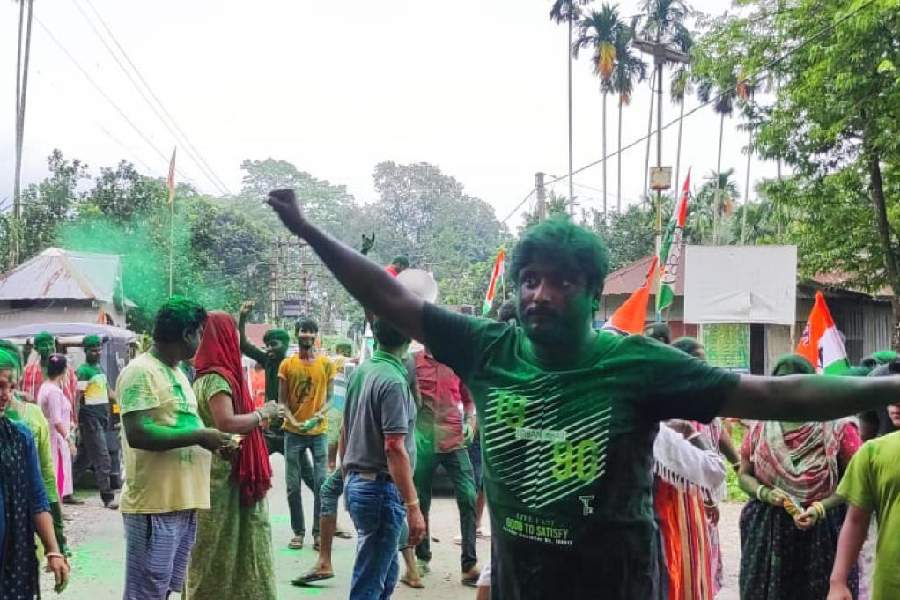Ruling Trinamul performed well in the panchayat elections in north Bengal’s brew belt, observers crediting the state government's multi-pronged initiatives to help the tea population, including consistent wage revision.
As results started coming out on Tuesday, it was seen that Trinamul won most panchayats in the tea belt. There are around 30 panchayats in Jalpaiguri and Alipurduar.
In Darjeeling hills, the Bharatiya Gorkha Prajatantrik Morcha (BGPM) headed by Anit Thapa, with which Trinamul had an informal pact, also did well in the tea belt.
Since 2019, support from the tea belt largely eluded Mamata Banerjee’s party as the BJP won all Lok Sabha seats and almost all Assembly seats.
This time, the BJP lagged behind Trinamul in rural polls — considered a barometer of grassroots support.
“Trinamul came up development projects for them, ranging from free houses to land rights. Since 2011, the Trinamul government has regularly revised tea wages. These were in addition to state government welfare schemes across Bengal,” said Soumen Nag, a social analyst, to why the tea belt gravitated towards Trinamul.
In 2011, when Trinamul came to power, the daily tea wage was Rs 67. In 2023, it is Rs 232.
Since 2021, when Trinamul won only one Assembly seat, Malbazar, out of 12 seats in the tea belt, Mamata's party took a concerted effort to revive its support base.
Trinamul general secretary Abhishek Banerjee announced facilities for tea workers that were implemented by the state such as identity cards for each tea worker, crèches in tea estates for women workers and health centres with ambulances. "Mamata's Lakshmir Bhandar (monthly aid for women), which is Rs 1,000 for SC and ST women, is also a factor,” said a political watcher in Jalpaiguri. "BJP MPs and MLAs, however, couldn’t bring anything substantial from the Centre."
Additional reporting by ourJalpaiguri correspondent











